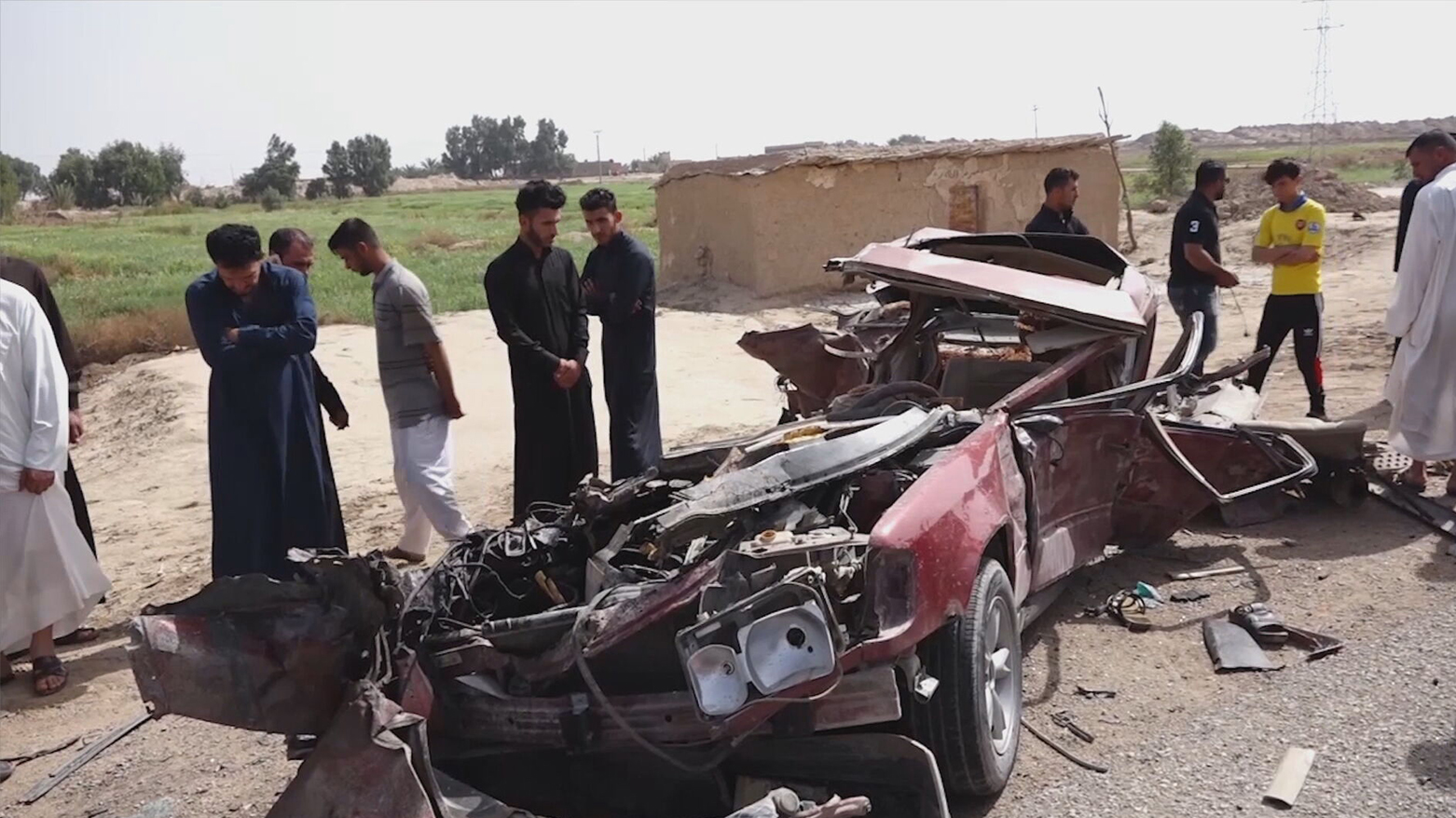'Mass Tragedies, Not Accidents,' 3,000 Injured in Dhi Qar in Three Months
One local, clearly distressed by the rising toll, remarked: "While it's true that many accidents are related to poor road conditions, some drivers, when they get on highways, drive as if they were in airplanes with their excessive speed."

By Kamaran Aziz
ERBIL (Kurdistan24) — An alarming surge in traffic accidents has turned the roads of Iraq’s Dhi Qar province into what many residents now describe as zones of "mass killings," as more than 3,000 individuals were injured in car crashes during just the first quarter of 2025. The figures, released by local authorities, highlight a deepening public safety crisis that continues to claim lives, devastate families, and expose critical weaknesses in infrastructure and enforcement.
Salama Sarhid, Assistant Governor of Dhi Qar, confirmed the staggering numbers in an official statement, saying that "the number of traffic accidents and resulting injuries in 2024 reached 5,600 people across Dhi Qar province. In the first quarter of this year alone, there have been 3,000 accidents, most occurring on roads outside the city due to numerous potholes."
Residents interviewed by Kurdistan24 painted a grim portrait of everyday life along the highways and rural roads of Dhi Qar.
One local, clearly distressed by the rising toll, remarked: "While it's true that many accidents are related to poor road conditions, some drivers, when they get on highways, drive as if they were in airplanes with their excessive speed. Some have passengers with them and don't realize they're putting those lives at risk too. A family might lose their father due to a driver's speeding."
Another resident criticized the lack of oversight and infrastructure on intercity roads: "One of the problems is the lack of surveillance cameras and radar on roads outside the city, which has caused drivers to drive at speeds exceeding 200 kilometers per hour."
A third noted: "The lack of road markings, xenon lights, and underage driving are causes of traffic accidents."
The testimonies reflect a multidimensional crisis. Poor road maintenance, high-speed driving, the absence of law enforcement tools, and a general lack of public awareness all converge to form a volatile mix.
Local officials have repeatedly cited potholes and deteriorating road surfaces as major contributors to the high accident rate, particularly in rural and unmonitored areas.
The consequences are not limited to injuries and fatalities alone. The community is experiencing long-term psychological trauma, financial strain from vehicle losses, and the erosion of public trust in authorities' ability to provide basic safety. In many areas of Dhi Qar, driving has become a daily gamble with life.
With 5,600 total injuries from traffic incidents in less than half a year, public calls for urgent reform and investment in road safety have grown louder. Community members, health officials, and civil society groups are pressing for immediate interventions, including the installation of traffic cameras, the repair and repaving of roads, stricter enforcement of licensing laws, and a public awareness campaign on safe driving practices.
Unless decisive action is taken, the roads of Dhi Qar could continue to function not as pathways of mobility, but as corridors of loss. As one resident put it: "These are no longer just accidents. They are mass tragedies happening every day."
The provincial government has not yet released a comprehensive roadmap for addressing the crisis, but expectations are mounting for Baghdad and regional authorities to step in with emergency measures.
For now, the residents of Dhi Qar live under the growing shadow of deadly roads and absent accountability, hoping that their calls for safety will finally be heard before the next tragedy strikes.